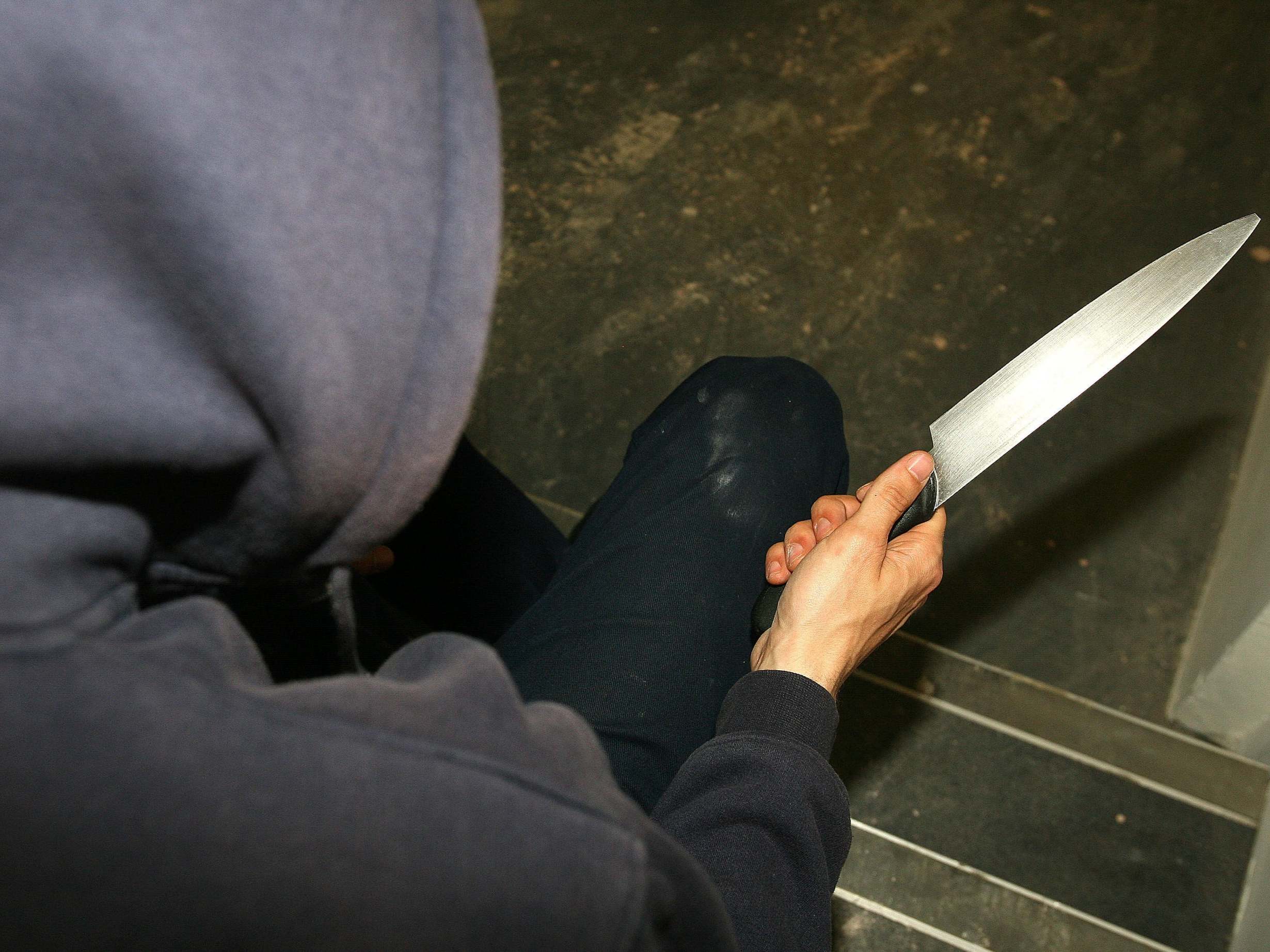Hold schools accountable for expelled pupils’ exam results to reduce knife crime, MPs say
‘Children out of mainstream education are at serious risk of gang exploitation,’ report says

Your support helps us to tell the story
From reproductive rights to climate change to Big Tech, The Independent is on the ground when the story is developing. Whether it's investigating the financials of Elon Musk's pro-Trump PAC or producing our latest documentary, 'The A Word', which shines a light on the American women fighting for reproductive rights, we know how important it is to parse out the facts from the messaging.
At such a critical moment in US history, we need reporters on the ground. Your donation allows us to keep sending journalists to speak to both sides of the story.
The Independent is trusted by Americans across the entire political spectrum. And unlike many other quality news outlets, we choose not to lock Americans out of our reporting and analysis with paywalls. We believe quality journalism should be available to everyone, paid for by those who can afford it.
Your support makes all the difference.Schools must be held accountable for the exam results of pupils they expel in order to reduce knife crime, a cross-party group of MPs and peers has urged.
Being excluded from school is often the “tipping point” that leads children to pick up weapons, according to a report by the All-Party Parliamentary Group (APPG) on knife crime.
It warns of a “disturbing correlation” between youngsters who are excluded from school and those who become involved in “county lines” gang exploitation and violence.
The group of MPs are calling for an overhaul to break the link between exclusions and knife crime.
Schools are being “too hasty” in excluding children due to a “flawed” league table system, the Ofsted inspection and funding pressures, the report warns.
Some young people also told the APPG that a growth in “zero-tolerance” behaviour policies meant schools increasingly relied on exclusions to respond to “relatively minor behaviour”.
Official figures, highlighted in the report, show that schoolchildren in England were permanently excluded on 7,900 occasions in 2017-18 – a 70-per-cent increase since 2012-13.
The group, of more than 50 MPs and peers, has called for an end to part-time education for excluded pupils, adding that some are only taught for a few hours a day in pupil referral units (PRUs).
The report warns: “It’s increasingly clear children outside of mainstream schools are at serious risk of grooming and exploitation by criminal gangs. Professionals talk of the ‘PRU to prison pipeline’.”
One child told researchers: “Since they kicked me out I’ve got time on my hands to do more crime, commit more crime [...] in Croydon with my friends who have also been kicked out, who are also doing wrong things, who are also selling drugs, who are also carrying knives.”
Labour MP Sarah Jones, who chairs the APPG on knife crime, said: “The number of children being excluded from school and locked out of opportunities is a travesty.
“Often these children have literally nowhere to go. They are easy pickings for criminal gangs looking to exploit vulnerable children.
“Excluding children must be a last resort. But we hear all too often of schools stretched too thin to provide the wrap-around support struggling children need. Cash-strapped councils can’t manage the increasing number of excluded children in need of alternative education.”
Javed Khan, chief executive of the Barnado’s charity, said: “With PRUs regarded as a recruiting ground for criminal gangs, it’s no surprise children taught there are vulnerable to involvement in drugs and violent crime.”
Paul Whiteman, general secretary of headteachers’ union NAHT, said the problem for schools, police and local authorities with tackling knife crime is that they are “under-resourced and over-stretched”.
He added: “Further legal obligations to work together will not solve the problem. The biggest barrier to keeping young people safe is a lack of funding for essential public services.”
Julie McCulloch, director of policy at the Association of School and College Leaders (ASCL) said: “The causes of knife crime are complex, and we need to be careful not to make school exclusions the scapegoat for this issue.
“It is important to emphasise that the vast majority of school leaders only ever exclude a pupil as a last resort, and it is also the case that most pupil referral units offer high-quality provision for young people in very challenging circumstances.”
She added that ASCL was looking at how league tables could be reformed to reward inclusion.
A review into school exclusions, carried out for the government by former minister Edward Timpson, recently recommended making schools accountable for the grades of students they throw out.
A government spokesperson said: “The issues surrounding knife crime and poor behaviour in schools are complicated and multi-faceted. Simple causal links between exclusions and crime cannot be drawn.
“We are clear that permanent exclusion should only be used as a last resort and exclusion from school must not mean exclusion from education.
“Furthermore, we must be just as ambitious for young people in alternative provision as we are for those in mainstream schools, and we are taking a range of actions to drive up the quality of those settings.”